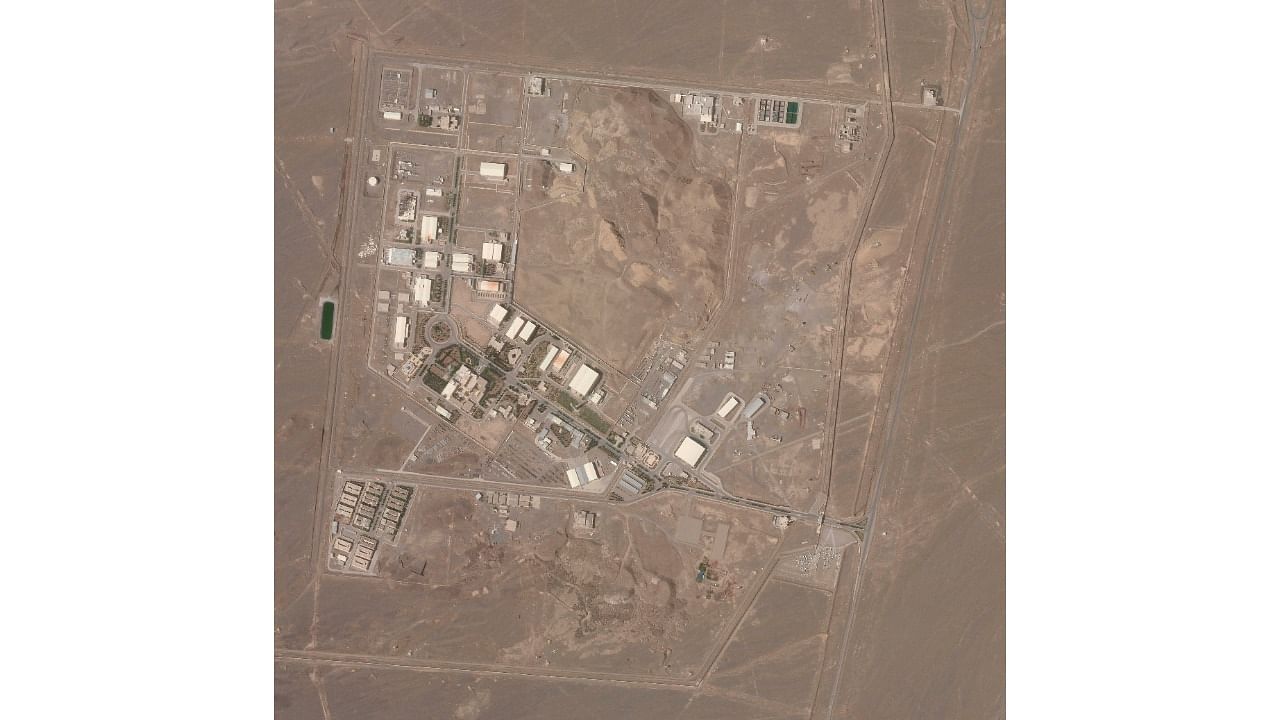
Iran said Tuesday it intends to ramp up uranium enrichment to what experts say are unprecedented levels, as talks over the future of the 2015 deal limiting its nuclear programme hang in the balance.
The process of uranium enrichment is the most sensitive area of the Islamic republic's nuclear programme as in theory it could form part of a nuclear weapons programme.
Tehran has always denied wanting to develop a nuclear bomb.
The enrichment process involves increasing the amount of a fissile isotope in uranium known as U-235. This is done by spinning uranium gas at supersonic speed in machines known as centrifuges.
Natural uranium contains 0.7 per cent U-235. Increased to 3.0-5.0 per cent it can be used for nuclear power reactors, at 20 per cent for nuclear medicines and at 90 per cent for a nuclear bomb.
Under the terms agreed upon in Vienna in 2015 with the United States, Germany, France, the United Kingdom, China and Russia, Iran said it would limit enriched uranium to 3.67 per cent in a particular compound form and up to 300 kilogrammes (660 pounds), which is the equivalent of 202.8 kilos of uranium in non-compound form.
The deal -- known as the JCPOA -- has been disintegrating since former US president Donald Trump dramatically withdrew from it in 2018 and re-imposed sanctions, prompting Iran to retaliate by exceeding the limits on nuclear activity laid down in the deal.
In 2019, it began enriching uranium up to 5.0 per cent purity.
According to the latest report from the International Atomic Energy Agency (IAEA), tasked with monitoring Iran's nuclear program, Iran's stockpile of enriched uranium is now more than 14 times over the limit set down in its 2015 deal.
It announced in January it was enriching uranium to 20 per cent purity, well beyond the threshold set by the deal of 3.67 per cent, though below the 90 per cent required for an atomic bomb. Stocks at that level of enrichment have reached 55 kilogrammes (121 pounds), according to Iran's atomic energy agency.
Then came Tuesday's announcement that it plans to enrich to 60 per cent.
The Iranians "have never gone above 20 per cent," Robert Kelley, a former IAEA director of inspections, told AFP Tuesday.
As well as increasing the purity levels, they have greatly increased the number and performance of their centrifuges, making them "bigger, better, faster," he said.
In total, the number of these machines increased from 5,060 before the 2015 deal to more than 6,400 in February.
Despite this "big step," to 60 per cent, which he described as "very provocative", Kelley also noted that "no one in his right mind is trying to make a bomb with 60 per cent."
"There are many, many things to develop a bomb that don't involve making uranium, all the mechanical components, high explosives, electronic, and there is not much evidence that they have done that," Kelley said.